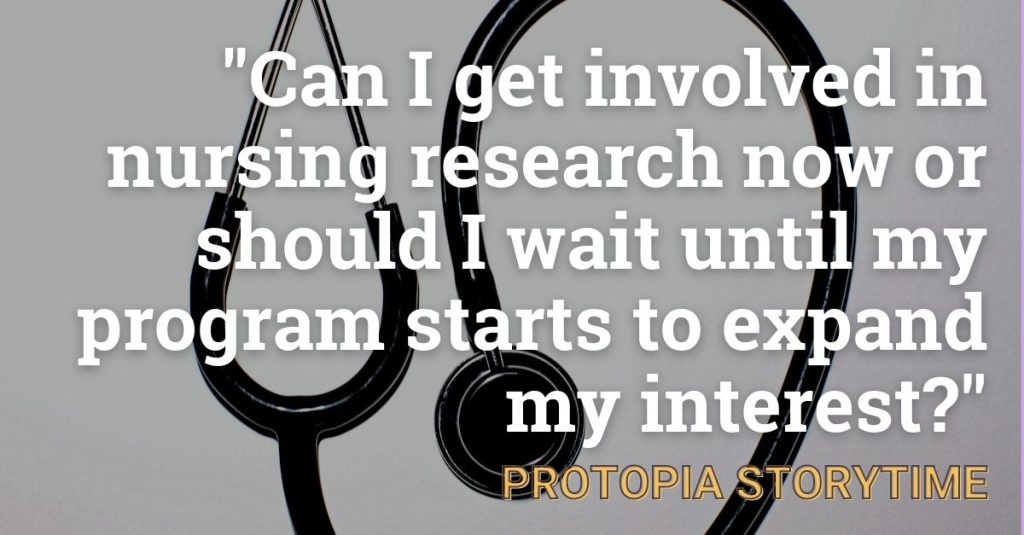storytime
EMORY GRADUATE NURSING STUDENT PONDERING RESEARCH
By MAX LEISTEN

Everyone needs help, big or small. You may seem like you’ve got it all figured out, but few of us do (I don’t include myself in that exclusive group …).
Here’s an awesome example of an advanced healthcare professional seeking advice on the timing of research as she starts her masters degree. As a parent with a few tough births in his past, perinatal nurses are as close to heroes as we have, so I am in awe of this graduate student pursuing further education and research to advance her field. And the responding alum appears to agree.
Happy Friday!
The "ask"
Hi, my name is AMY, and I graduated from Emory College with a degree in Neuroscience and Behavioral Biology and a degree in Nursing from the School of Nursing in May 2020.
I am a high-risk perinatal nurse, and I am starting Emory’s Master’s of Science of Nursing in Women’s Health program this fall.
My question is if I can get involved in nursing research now or should I wait until my program starts to expand my interest? I am not sure where to begin and would appreciate all advice or recommendations on how to start my journey within nursing research. Would I be able to continue working as a nurse? In addition, would it be beneficial for me to switch to a clinical research nurse in obstetrics, gynecology, or overall women’s health, or would it be too much change all at once with starting my Master’s program?
Thank you so much for taking the time to answer my questions and giving your thoughts! I truly appreciate it!
The "give"
Wow, AMY, what a wonderful problem to have- so many options available from which to choose.
Okay to answer some of your questions:
Research Nurse positions usually require a BSN, often include research coordinator duties such as recruitment, informed consent process, scheduling visits, performing study measures (labs, EKG, etc.), dispensing IP (investigative product, i.e. study drug, device or treatment) plus data entry & management. Sometimes start up of new study takes extra time learning protocol, getting IRB approval, enrolling subjects, screening visits, and more. It can be a lot to absorb for anyone, even seasoned research nurses. Having expert organizational skills is essential.
I was fortunate to enjoy an APRN position in the neurology department which was split between clinical practice and coordinating research studies. Over time the Brain Health Center has learned that APRNs who see dementia patients daily can burn out. With recent hires APRN positions will be 50% Cognitive Disorders clinic and 50% research. We think this will be interesting and challenging, but more able to provide a work-life balance.
I found graduate school to be challenging; working part-time suited my needs best. But times are different as there was no internet or online classes. I would have been overwhelmed taking on a new job and starting grad school simultaneously, but that’s me. Change is stressful-even changes we choose.
Best to know the reasons you make a choice- do I need to change employment for financial reasons? Do I need a change from my current job stress?
You have 6 months before school starts. A position in research might be interesting and may suit your needs. If the job responsibilities have flexibility, it may be possible to continue in that position when classes start. We had a nurse here at Goizueta ADRC who pursued her masters at Emory while still working.
Any choice you make is not forever- everything changes. Good luck, hope this helps.